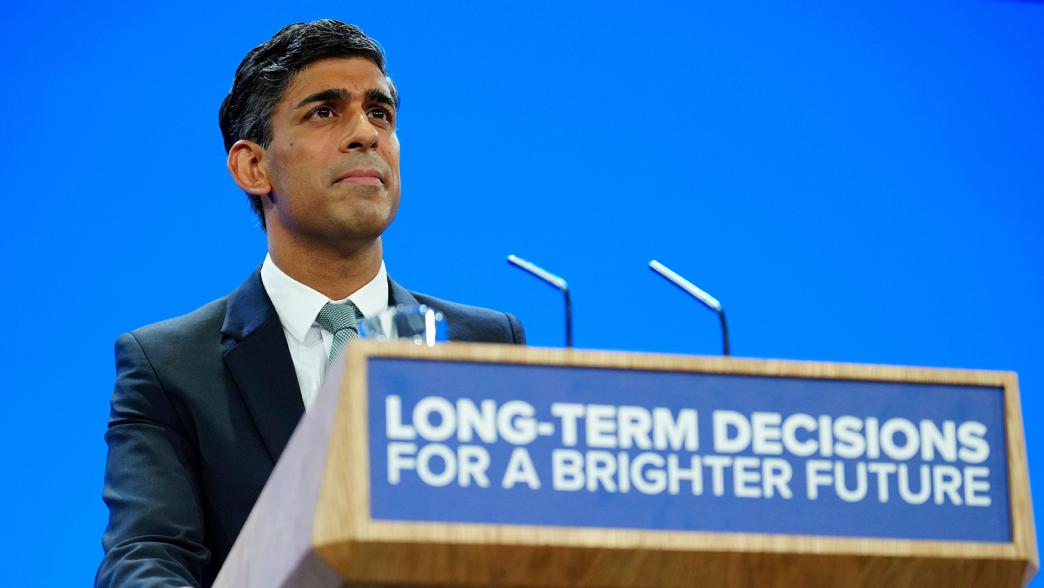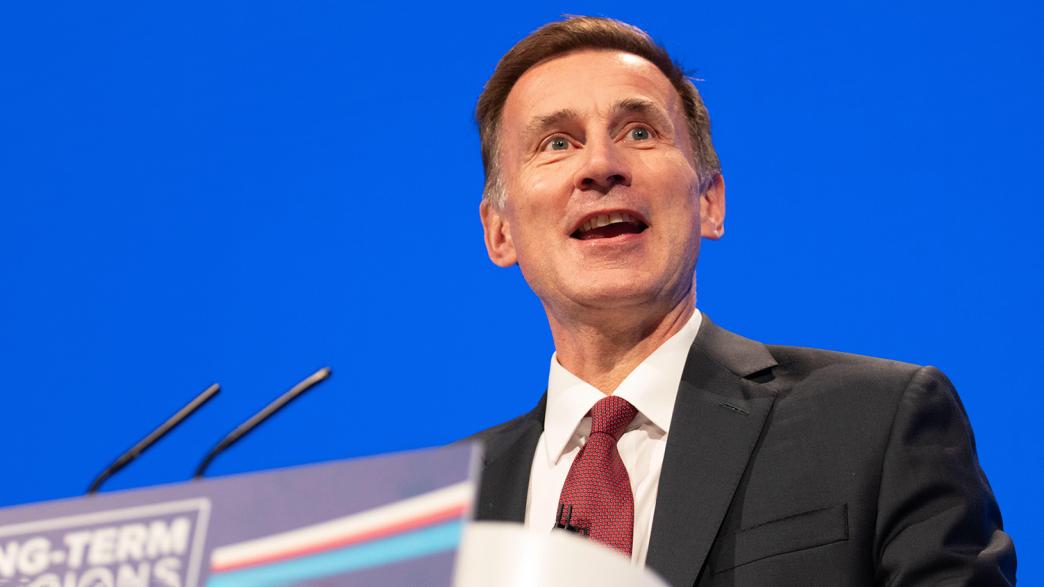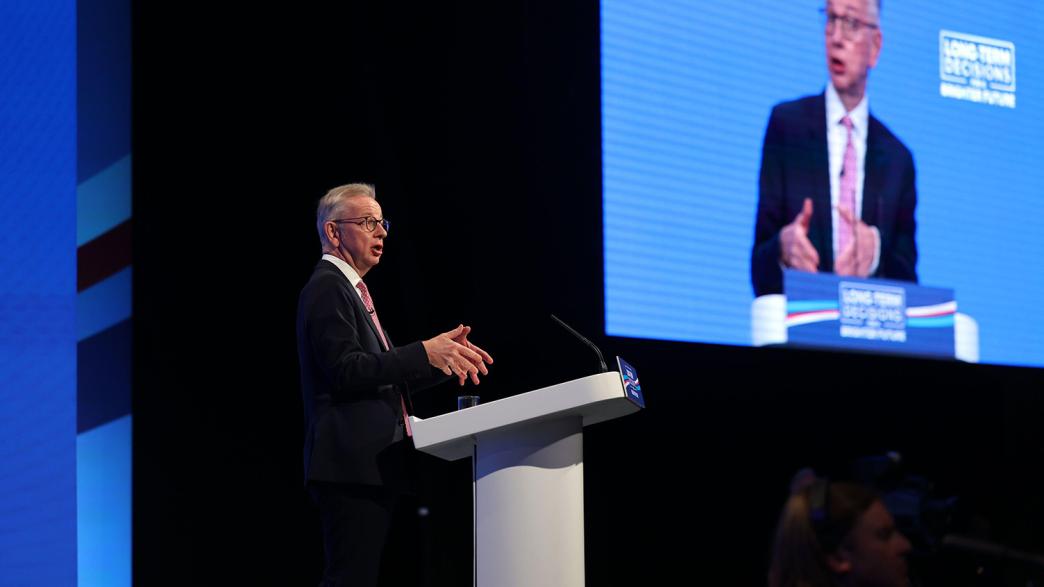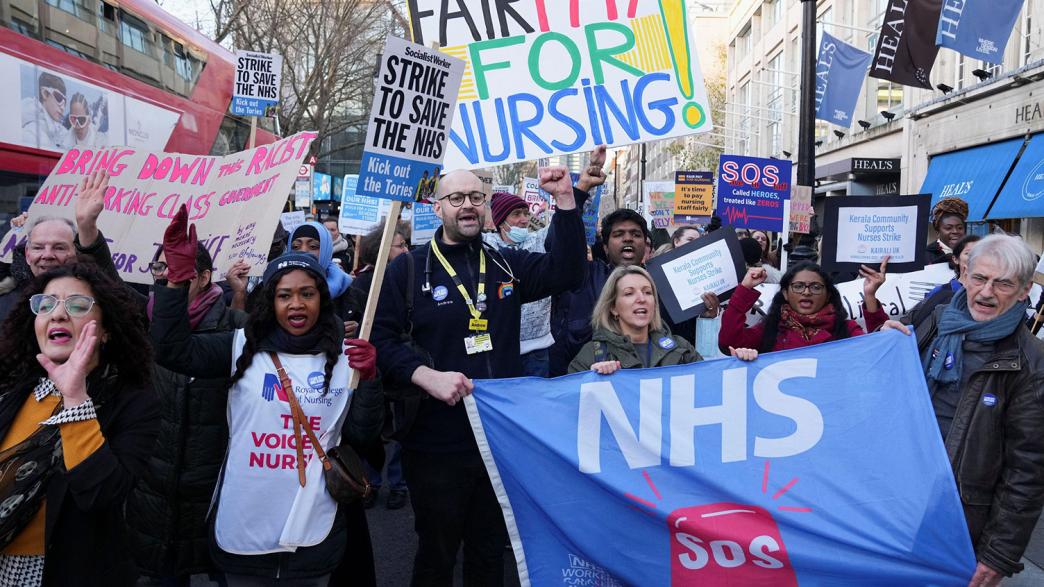Six key takeaways from the Conservative Party conference in Manchester
Rishi Sunak’s speech made the headlines – but the Conservative Party conference was full of sub-plots worth following.

The IfG expert team spoke at fringe events, toured the exhibition centre and watched the big ministerial set piece speeches – here are their six takeaways from the Conservative Party conference.
1. A post-Sunak future for the Conservatives was openly discussed
Alongside the succession of rather brief and sometimes remarkably content-free speeches from ministers in the main hall – with policy announcements being saved for Rishi Sunak’s speech on Wednesday – there was a decent programme of fringe events curating lively discussions within all factions of the Conservative Party. What was unusual at the first party conference of a new party leader was the relative openness with which many fringe speakers contemplated the possibility of his departure.
Despite protestations from ministers that the Conservative Party could reverse its fortunes, many fringe participants actively contemplated the possibility of a Conservative loss at the next general election, whether in the beginnings of a pre-mortem about the failures of recent governments (a common narrative on the right being that these had not been Conservative enough) or the discussion and positioning of candidates to take over as party leader. But Rishi Sunak’s closing speech delighted many of the activists who had braved the train strike to remain in Manchester and will have provided encouragement to those in his party who would like to see the prime minister secure his own majority.
2. Jeremy Hunt should target pounds not people in his civil service savings
The headline civil service news at conference was the chancellor’s announcement that the government would aim to reduce the number of civil servants by 66,000, bringing staff numbers back to pre-pandemic levels. It is essential that the civil service is efficient and there is a strong case, for example, to reduce the number of policy professionals, given their numbers grew by around 35% during Covid. But capability is also crucial and in some areas the civil service needs more people not fewer – indeed, ministers launched a drive for 2,500 new data and digital jobs just days before Jeremy Hunt announced his target.

A more effective approach would have been to target pounds not people – if the government wants to save money, then that’s what it should be directly incentivising. As the Institute argued when Jacob Rees-Mogg set a target to reduce staff numbers by 91,000, arbitrary headcount targets risk pushing out the best and most marketable officials and contribute to a boom and bust approach to civil service management.
But while cuts grabbed the headlines, at fringe events there was an important debate about the role of institutions and the balance of power between elected politicians and administrators. There were plenty of broadsides at an amorphous blob, but also more sophisticated arguments. Jacob Rees-Mogg, a former business secretary, argued that it was the role of ministers to set the incentives to which officials respond, and that much of what is sometimes framed as civil service ‘opposition’ is simply officials doing their job by reminding ministers that some decisions are unlawful under legislation that their own or previous governments have passed.
3. The government is at risk of squandering its improved relationship with business
Less than a year ago, business was relieved by the prospect of Rishi Sunak taking over after Liz Truss’s disastrous tenure. Relations hit a peak with the prime minister’s negotiation of the Windsor Framework, removing the threat of instability in UK relations with the EU and paving the way for more cooperation.
After a fractious and at times chaotic week running up and through Conservative conference, it feels like much of this good will has been squandered. The HS2 decision, allowed to dominate headlines for days, was not welcomed by leading business organisations including the British Chambers of Commerce or MakeUK. The prime minister and his cabinet continue to imply that his shift on green policy is a sign of decisive leadership, but the change of direction has further unsettled a business community keen for signs of long-term stability. It is also disturbing to hear the government steadfastly assert that the PM has found ways of delivering net zero at a lower cost, when the Committee on Climate Change clearly disagrees. It likes to go through the details too.
It is difficult to find any business policy in the speech of the business secretary, Kemi Badenoch, and the chancellor Jeremy Hunt restricted himself to references to shifts in the welfare system, nudging more people into work. Ministers everywhere stuck to the line that Brexit is working, rather than admitting to the many flaws in the settlement that business wants to see fixed. Clearly Manchester was much more about party management than setting out a vision that corporate Britain can get behind.

The decision to cancel the high-speed Birmingham to Manchester leg of HS2 was not welcomed by leading businesses who are keen for signs of long-term stability.
4. The levelling up agenda no longer looks like a government priority
Any discussion of ‘levelling up’ at the conference naturally turned quickly to fevered speculation around changes to HS2. Rishi Sunak’s speech on Wednesday put an end to that speculation, announcing his new ‘network north’, a set of smaller transport projects across England. The government has not yet set out the timescale for these projects to be delivered. After the problems with HS2, people are understandably sceptical that this new promised investment will materialise.
However, the levelling up agenda, as set out in last year’s white paper, was always about more than transport, with the government’s 12 missions encompassing most areas of policy. Yet there was little at the conference to suggest that these missions, and the goal to reduce longstanding regional inequalities, remain this government’s priority. Michael Gove, the secretary of state for levelling up, housing and communities, focused mostly on housing during his speech, with little to say about his department’s flagship agenda. The exception was a new announcement of just over £1 billion committed to 55 towns to be spent over 10 years. But while this money will be welcome in the places that receive it, just over £100m per year will do little to address regional disparities, highlighting a gap between the transformative change promised by rhetoric of ‘levelling up’ and the reality of this government’s current policy offer.
In events at the fringe of the conference, including those hosted by the IfG, the clear success story on levelling up is the progress the government has begun to make on devolution within England. But even here, there was acknowledgment that the task is only half complete and we need a more uniform and consistent settlement over the coming years.

5. A sophisticated debate on regulation took place – despite an anti-regulatory rhetoric at conference
The government announced a “review of regulators to cut red tape and bureaucracy” on Monday. In line with this, an anti-regulatory narrative was present at conference, but focused discussions about how to improve regulatory outcomes in financial services, professional services and new technologies were much more sophisticated – to the point that general debates about “more” or “less” regulation seemed disconnected from complex reality.
Our event on how regulators can promote growth and protect the public (in partnership with the Solicitors’ Regulation Authority), for example, heard from science minister George Freeman about how innovation requires not a regulatory race to the bottom, but to the top. International convergence in existing sectors matters now, for investment certainty, but in the longer term the UK has an opportunity to think differently about regulation in emerging fields and to take the world with us.
In this context, everyone wanted to talk about artificial intelligence. Wide-ranging questions were raised about how to regulate and indeed to understand the underlying technology, which will require sustained work from technology experts, regulators, lawyers, ethicists and more. The upcoming AI summit was a hotly anticipated opportunity for the UK to set out its stall on a global stage and delegates were keen that the UK should use this not just to agree an approach to the technology’s risks, but also to cement its leading position in exploiting the opportunities.

Regulating AI was a keen topic at the Conservative Party Conference, with questions around how to regulate and understand the underlying technology.
6. A welcome focus on public service productivity – but no sign of a plan yet
Sunak gave the notable commitment that his “main funding priority in every spending review from now on will be education”. Beyond echoing Tony Blair, this could, if he is in a position to deliver another spending review, signal a significant change in approach.
More concretely, Sunak announced the “Advanced British Standard” for post-16 education (confusingly only in England – education is a devolved matter). This will require training many more teachers – an area where the government has been struggling to hit targets for much of the past decade. To help overcome these problems, Sunak announced “special bonuses of up to £30,000” for new teachers of key subjects working in certain areas. The government has said that it would put £100m per year into making this a reality.

The “Advanced British Standard” for post-16 education will require training many more teachers.
On health, Sunak praised the long-term workforce plan for solving the problem of “hiring staff from abroad or paying temporary agency workers huge fees”. But in the same breath condemned doctors for striking. These two issues, however, are inextricably linked. The NHS makes such extensive use of international recruitment and agency staff precisely because pay and working conditions, which doctors are striking over, are not sufficiently attractive to staff from the UK.

The chancellor Jeremy Hunt’s speech had a welcome focus on public service productivity. Previous Institute for Government work has shown that productivity in the NHS has not recovered to pre-pandemic levels, and our upcoming Performance Tracker, published in partnership with CIPFA, shows there are productivity issues across many public services. There are a number of causes of this reduction in productivity including loss of experienced staff, an underinvestment in capital, and a lack of management capacity, among others. But details of what the government will do to resolve these problems are yet to emerge pending a review being conducted by John Glen, the chief secretary to the Treasury.
- Keywords
- Party conferences General election Spending review Public spending Civil service reform Public sector NHS Transport Education High Speed 2 Levelling up
- Political party
- Conservative
- Department
- Department for Levelling Up, Housing and Communities Department of Health and Social Care Department for Education Department for Transport Department for Business, Energy and Industrial Strategy
- Public figures
- Rishi Sunak Jeremy Hunt Kemi Badenoch Michael Gove
- Tracker
- Performance Tracker
- Publisher
- Institute for Government